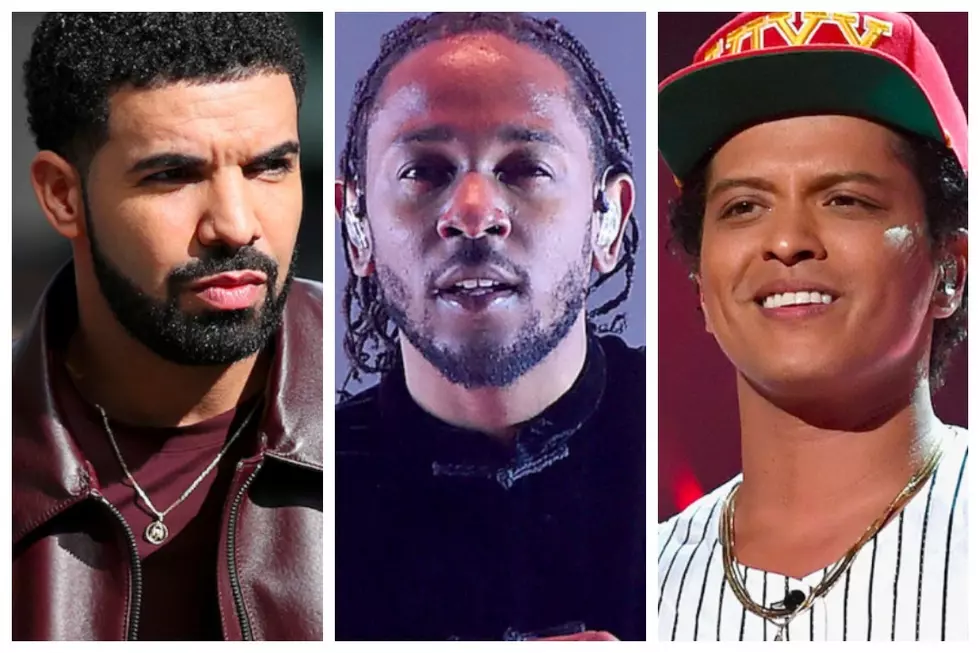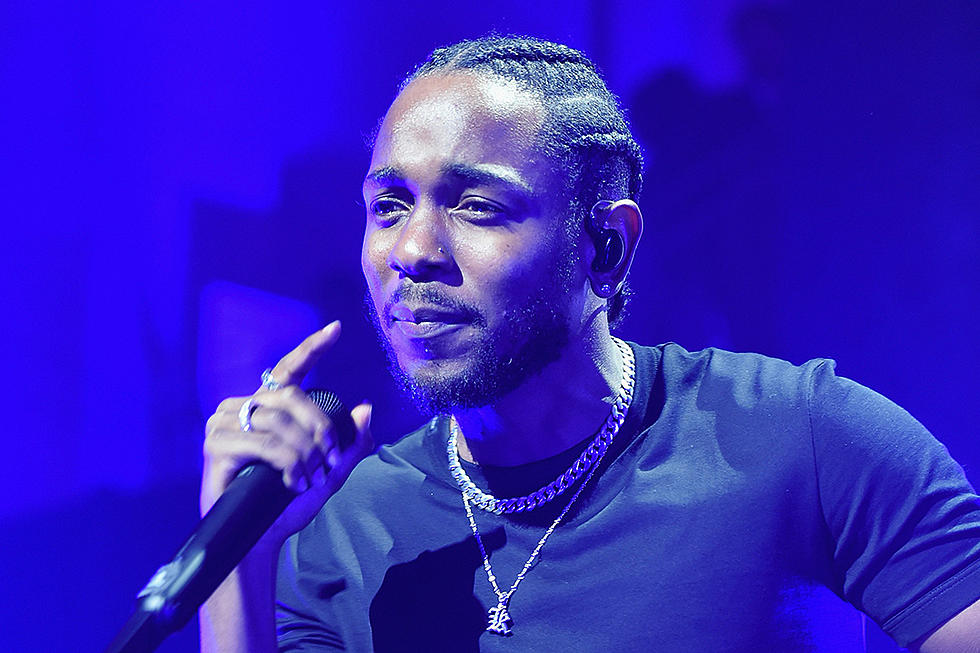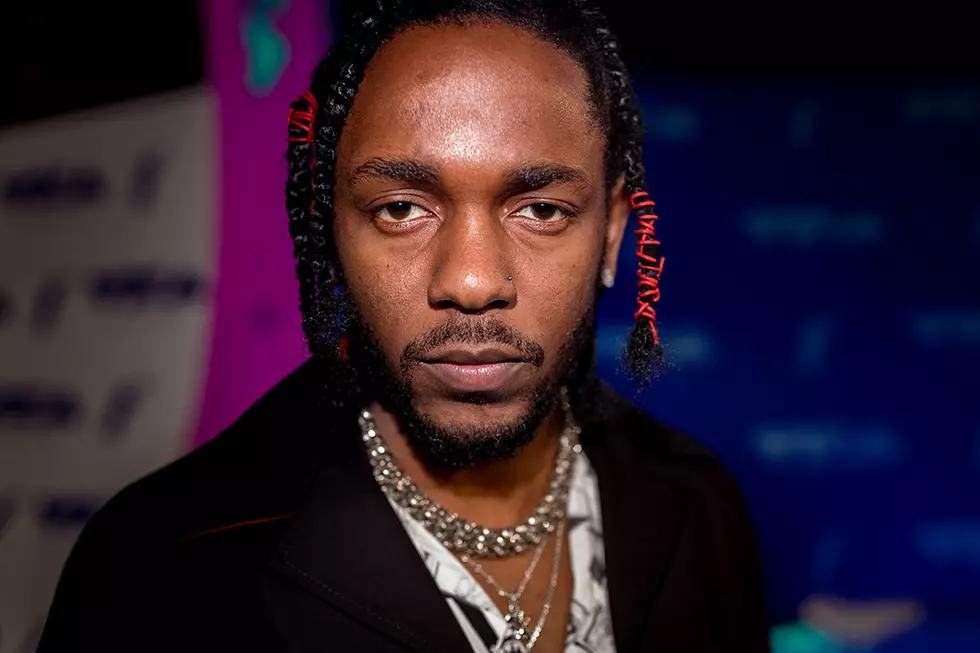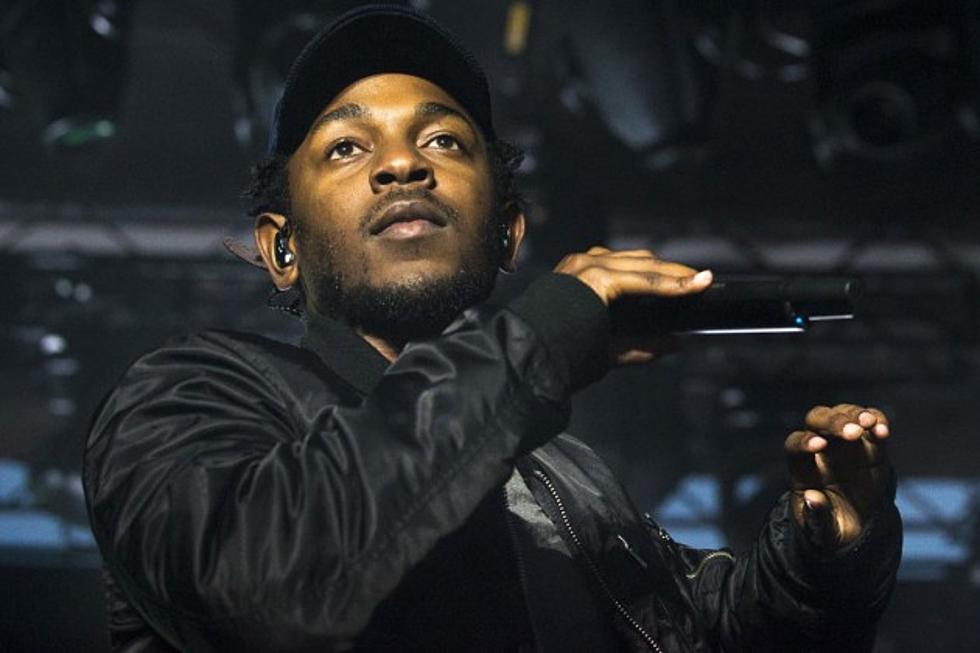
Follow the Leader: Why Kendrick Lamar Is Hip-Hop’s Most Important Voice in 2015
Kendrick Lamar may be the most important voice in hip-hop since Tupac Shakur. Just let that statement sink in for a second. For nearly two decades, rappers have come and gone since the untimely demise of one of the biggest icons in the genre’s history. The 27-year-old from Compton, Calif. is delivering powerful messages in his music and if you haven't been paying attention, it's time you did.
That’s not to say that there hasn’t been any other artists that have graced the game's grand stage and made an impact. Jay Z has taken the culture to heights that had yet to be seen before his ascension to mogul status, 50 Cent took advantage of the mixtape scene and opened up the pipeline for an innumerable amount of artists and Kanye West made it cool to be an overachieving guy in rap music without being pegged as underground or indie. However, Kendrick has an ability to touch the hearts of fans, delve into racism and still make music for the mainstream. Listen to his most recent self-esteem booster "i" if you're unaware of this delivery.
There’s a method to Kendrick’s madness -- one that many other artists should and have begun to follow -- and that’s the art of leaving the listener captivated. The greatest skill of any entertainer is to please the crowd, yet leave the people wanting more -- spellbound even. Kendrick has mastered that art better than any MC in recent memory. I discovered the magic of Kendrick Lamar around the time he dropped his Kendrick Lamar EP in 2009, and was instantly impressed.
That period of time was a renaissance of sorts for the blog game with a slew of new-gen rappers emerging on the scene with what are now considered classic releases. Kendrick may not have gotten the same hype off the bat, but managed to pique interest through songs like "I Wanna Be Heard," the BJ the Chicago Kid-assisted "Faith" and the vivid storytelling number "Uncle Bobby & Jason Keaton."
The songs were poignant and provided a transparent look into the young rapper's life, along with his hopes, dreams and fears. The project was well-received, but far from a smash success and failed to garner him enough acclaim to escape the streets of Compton just yet. His 2010 breakthrough project, Overly Dedicated, was like his prior release, only this one seemed like it was sponsored by BALCO because the strength and foundation was the same, but the soundbeds were more lush and refined this time around.
Watch Kendrick Lamar's "i" Video
The album garnered him the buzz and press that had eluded him the first time around, snagging a spot on XXL’s coveted 2011 Freshman cover and emerging as one of the more highly touted indie rappers in the game. By the time Section.80 came around in 2011, Kendrick was the hottest rapper in the game without a major label debut album to his credit. The anticipation for his LP was at an all-time high and the stakes were even greater.
After working under the tutelage of the legendary producer Dr. Dre, Kendrick inked a deal with Interscope Records through Top Dawg Entertainment in 2012. And when good kid, m.A.A.d. city (now regarded as a classic) touched down that same year, we immediately knew that rap had something special with Kendrick. It had been about a decade since a debut album had hit the triumvirate of the hip-hop heads, the critics and the mainstream alike (the other two albums being 50's Get Rich or Die Trying and West's The College Dropout) with unified acceptance.
The album shifted the paradigm in a way that was greatly needed. Rap music was beginning to feel regurgitated and had started to jump into waters of being made a mockery. Kendrick's success off one album -- it's now certified platinum -- was the catalyst for the current change that we are seeing in music today.
Albums like J. Cole’s 2014 Forest Hills Drive and Logic’s Under Pressure cater to what their core fans have grown to love about their lyrical stylings, much the same way Kendrick’s good kid, m.A.A.d city did two years prior. Artists feel the pressure to conform to the standards of the major record label system, but a project like K. Dot's throws a crippling blow to that blueprint. Releasing a dud and getting tossed into the graveyard where all the other promising, yet “failed” rappers are thrown to waste away is very prevalent in the minds of many, but when you're spitting very real truths and are no gimmick, it's hard not to succeed.
Kendrick is keeping the listener’s interest in the palm of his hand by following the mantra less is more. A big part of why rap blew up in the first place is that the people, places and things surrounding the culture were a bit mysterious and elusive when it was born in the '70s. Before the days of 24/7 coverage via online outlets and direct interaction through social media platforms such as Twitter and Instagram, you would only see your favorite rapper in one of the two to three music videos they released each year, a feature article in a magazine or an occasional appearance on MTV, BET or the like. With the increasing numbers of artists struggling to be heard among the millions uploading new content at a rapid pace to streaming sites like SoundCloud, many feel the need to service their fans with content at a rapid pace. Not Kendrick.
After dropping what may be the best all-around rap record this decade, Kendrick didn’t feel the need to capitalize on his hype and release a slew of videos, do a ton of press or release side projects. The rapper let his voice and the music speak for itself. He's not the kind of artist that sees the next guy gearing up for a release and will drop a new track so the internet thinks he's just as important too.
Instead, Kendrick basically pulled a Jay Electronica -- albeit after actually releasing an album -- and seemingly vanished in recent months. Outside of the occasional guest appearances on a record, he wasn't releasing new music on the solo tip. When we did get the chance to hear him lyrically, it wasn’t a mailed-in effort but rather a one-shot deal of lyrical ferocity that is unrivaled. Instead of forcing the issue and reminding listeners that he’s the preeminent MC in the game -- which he is -- he uses his rap verses as a way to speak poignantly when the mic is passed his way.
His rhymes come off as sonically rambunctious, but the message he’s delivering is rather subtle yet clear. When the static of hypebeasting and grandstanding fizzle out, if your words are worth their weight in gold, you can be the calm within the storm, unleashing your wrath at a moment's notice. Take his verse on Big Sean's 2013 song "Control," for instance. The impact of those bars ("I'm Makaveli's offspring, I'm the King of New York King of the Coast, one hand, I juggle them both," in particular) on that record were similar to the bomb that hit Hiroshima.
Rappers scrambled for studio time and his words were an opportunity for fans and critics to sound off -- or tweet in 140 characters -- on the subject of who's worthy of being the real King of New York. Kendrick's words are a testament to the power that he wields as an artist. He had the ability to change the conversion in hip-hop with a single verse on another artist's track. When he has something to say, people listen and react accordingly.
That’s the reason why his most recent tracks preceding his sophomore album make as much of an impact as they do. The Rahki-produced effort "i," released in September of 2014, is an anthem promoting self-love and self-confidence -- a topic often left to the wayside in hip-hop. The song even earned him Best Rap Performance and Best Rap Song at the 2015 Grammy Awards, a ceremony he was noticeably absent from.
Then there's "The Blacker the Berry," which challenges the black community's approach to racially-charged injustices in a hypocritical manner. He tackles racism and hatred and celebrates his African-American heritage in the same breath. The song is a far cry from the empowering words of "i" but showcases K. Dot's versatility and grasp on important societal issues.
Songs like these prove hip-hop has substance in 2015. The lyrics remind listeners they're not forgotten and serve as a soundtrack to current events while also making others uncomfortable when it comes to conversations about race. This is an artist for people to stand behind. "i" and "The Blacker the Berry" aren't tracks that most rappers would deliver in the current music climate. Many artists think just like Kendrick but are slow to voice their opinion for fear of being deemed as an opponent of the machine and cast into the pile of entertainers that are usually relegated to the underground.
Listen to Kendrick Lamar's "The Blacker the Berry"
He writes songs promoting equality, peace and personal growth, all of which are usually low on the totem pole of topics that are touched on by the average MC of today. We won't deny that there are a slew of songs that speak to the same topics by artists with lyrical aptitude. Most of your favorite rappers know how to pull it all together, but as the saying goes, if a tree falls in a forest and no one is around to hear it, does it make a sound? Sad as it is to say, most times, no. Kendrick is in that rare and prime position to change the way new artists approach making music.
Success breeds influence. The way that Kendrick is flourishing by moving the pieces around on his mental chess board instead of opting to play checkers and chase hits for radio play is an indication his upcoming sophomore album could be the ultimate checkmate in being hailed the voice of a generation.
Sure, there are a plethora of MCs and rappers that possess lyrical chops similar to Kendrick and can rhyme with substance, but either they’re inconsistent (ahem, Jay Elect) or too driven by what the music industry deems the bottom line, which is revenue. Then there are others too content in the trappings of fame to truly immerse themselves in kicking the truth to the young rap youth.
Kendrick Lamar is one of those rare souls with the intent of truly leaving behind a legacy to behold for decades to come. The hits, plaques and accolades will likely add up, but it's not his focal point. The TDE signee hasn't had any problem achieving tangible success as of late with a million-plus sold of his major label debut, good kid, m.A.A.d. city, money in the bank and two Grammy Awards under his belt. But his words are what will be remembered.
With the most anticipated rap album of the year on the horizon, Kendrick stands in waiting behind the curtain with his microphone serving as the wand, preparing the release of his artistic wizardry. The day he decides to share his sophomore LP with the masses, fans and critics will witness the magic unfold, but, most importantly, they'll listen intently to what he has to say.
See 10 Most Anticipated Rap Albums of 2015
More From TheBoombox




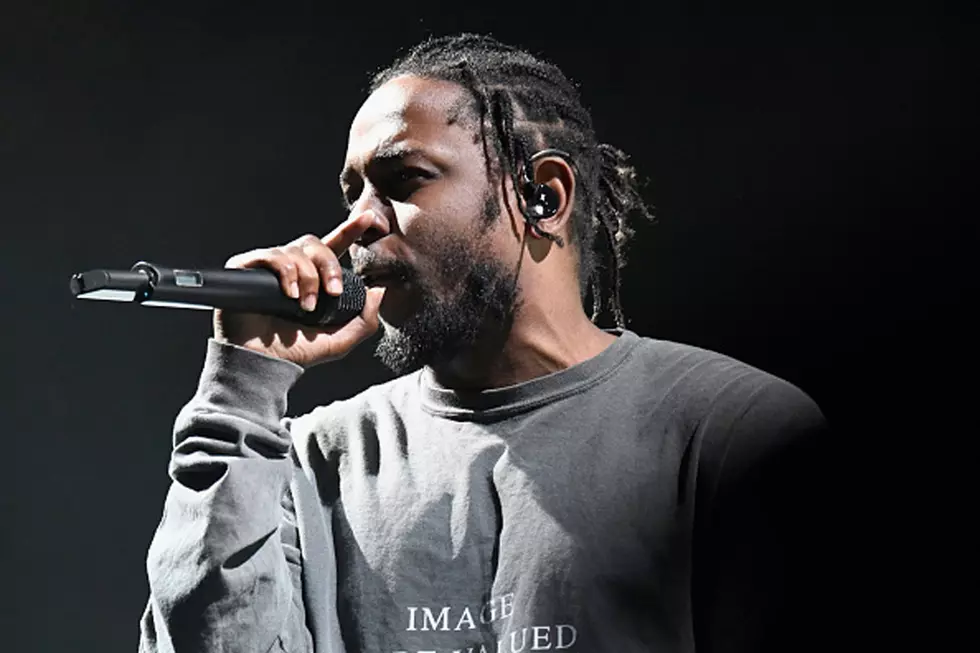
![Did TDE’s Punch Hint at a Kendrick Lamar and J. Cole Collaboration? [PHOTO]](http://townsquare.media/site/625/files/2017/07/kendrick-jcole1.jpg?w=980&q=75)
